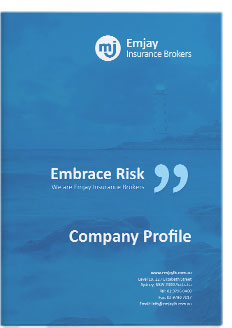Contractual liability insurance is necessary for all business owners. It is a thing that all business owners and contractors have in common. It is vital to have agreements in place to legally provide or purchase goods and services, to lease property or equipment, or for labour hire purposes.
The vast majority of these contracts are drawn up by third parties, and not necessarily with your own business practices and insurance arrangements in mind. They are likely to contain indemnity clauses, where one party seeks to impose a risk – and liability for that risk – on another.
Some contracts have terms and conditions within them that are very hard for the contractor’s existing insurance policies to respond to. If you sign such a contract it could compromise, or even invalidate, your insurance cover. If that happens, your business could take a serious financial or reputational hit in the event of a claim. This is why contractual liability insurance is pivotal.
However, the contractor space is so competitive right now that there’s a great temptation to just sign on the dotted line to secure the business. That can be a mistake, and we’ve set out some of the key things you need to consider before you sign your life away.
Where do I find an indemnity provision in a contract?
When investigating contractual liability insurance, the first process is to assess the contract. Contracts generally contain heading for guidance purposes and it’s quite common to find indemnity provisions under “Indemnity” and/or “Indemnity and Insurance” headings. However, indemnity clauses can be found multiple times throughout contracts, even where there are no obviously related, so caution is advised.
How do I work out what the indemnity clause means?
An indemnity clause will identify the nature of the promise. In many documents there are defined terms, which are usually CAPITALISED or in bold. It’s particularly important to check for definitions which relate to the services that are provided under the contract, and any definitions of the indemnified party.
The definition of “indemnified party” may specify that the contracting party includes employees, agents, contractors and subcontractors. The person providing the indemnity may have no relationship with the parties they are liable to indemnify and may not even know of their existence.
Indemnities can be proved for acts or omissions, breaches of agreements and breaches of warranties. They can also relate to liabilities caused or contributed to by the services that you provide in accordance with the contract. The wording in an indemnity clause is of paramount importance, but can be difficult for the layman to fully understand due to its legalistic nature. However, to understand the indemnity clause you need an understanding of:
- all the promises in the contract;
- all your obligations under the contract;
- all the definitions;
- all the warranties; and
- the indemnity clause itself.
From time to time there will be more than one indemnity clause which would apply to circumstances. Therefore, it is important to ensure that each indemnity clause is limited in the same way.
What type of actions can the indemnities apply to?
Generally, the indemnity clause will specify the actions which will trigger the clause. The actions are usually:
- acts or omissions arising in connection with the services provided; and
- a breach of a term of the contract; and
- a breach of a warranty (a promise or representation as to a state of affairs) in the contract.
The wording of the indemnity clause is very important as it may extend the indemnity to acts or omissions which cause the loss, contribute to the loss in whole or in part, or arise from the act or omission. It always pays to ask for expert assistance to make sure you’re fully aware of the ramifications of indemnity clauses in your contracts.
At Emjay Insurance Brokers, we offer a comprehensive contract analysis and review service, and have helped hundreds of clients through the contractual liability insurance minefield. We’ve even developed our own manuscript wording for industries that really need this type of cover. Just another thing we offer to help our clients live assured.
We highly recommend all contractors talk to us about a thorough audit of all contractual matters. So before you next put pen to paper on a contract, make sure you understand all its potential ramifications for your business. It is crucial to gain a full scope of the contract in order to protect yourself with contractual liability insurance. Call us today on 02 9796 0400.





